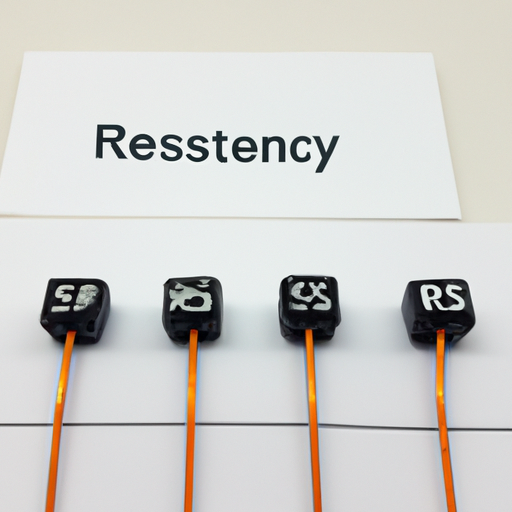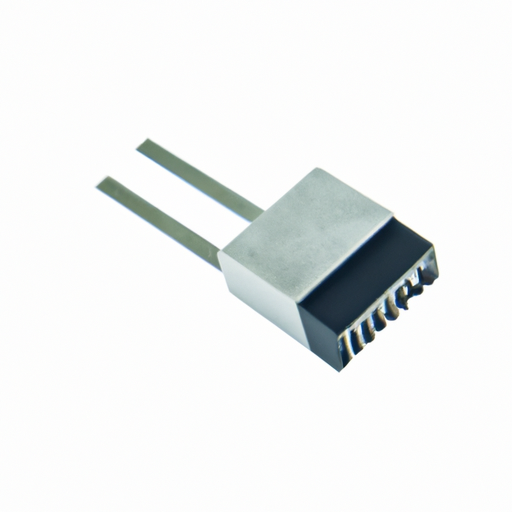What are the application scenarios for resistor supply?
Application Scenarios for Resistor Supply
I. Introduction
In the realm of electrical engineering, resistors play a pivotal role in circuit design and functionality. A resistor supply refers to the provision of various types of resistors used in electronic circuits to control current flow, divide voltages, and protect sensitive components. Understanding the application scenarios for resistor supply is crucial for engineers and designers as they navigate the complexities of modern electronics. This article will explore the significance of resistors, their types, and the diverse applications across various industries.
II. Understanding Resistors
A. Basic Functionality of Resistors
Resistors are passive electrical components that limit the flow of electric current in a circuit. They are essential for controlling voltage levels and ensuring that components receive the appropriate amount of current. By converting electrical energy into heat, resistors help maintain circuit stability and protect sensitive devices from damage.
B. Types of Resistors
1. **Fixed Resistors**: These resistors have a constant resistance value and are widely used in various applications. They are available in different materials, including carbon, metal film, and wire-wound types.
2. **Variable Resistors**: Also known as potentiometers or rheostats, these resistors allow for adjustable resistance. They are commonly used in applications where tuning or calibration is necessary, such as volume controls in audio equipment.
3. **Specialty Resistors**: This category includes thermistors, photoresistors, and varistors, which are designed for specific applications. For instance, thermistors change resistance with temperature, making them ideal for temperature sensing.
C. Key Specifications
1. **Resistance Value**: Measured in ohms, this value indicates how much the resistor opposes the flow of current.
2. **Power Rating**: This specification indicates the maximum power a resistor can dissipate without being damaged, typically measured in watts.
3. **Tolerance**: This refers to the precision of the resistor's resistance value, expressed as a percentage. A lower tolerance indicates a more precise resistor.
III. Application Scenarios for Resistor Supply
A. Consumer Electronics
In consumer electronics, resistors are integral to circuit design. They are used in devices such as televisions, smartphones, and audio equipment to manage current flow and voltage levels. For example, in audio equipment, resistors help control the gain of amplifiers, ensuring sound quality and preventing distortion. In smartphones, resistors are used in various components, including touchscreens and power management circuits, to enhance performance and reliability.
B. Automotive Industry
The automotive industry relies heavily on resistors for various applications. In Engine Control Units (ECUs), resistors are used to manage sensor signals and control actuators. They play a crucial role in safety systems, such as anti-lock braking systems (ABS) and airbag deployment systems, where precise control of electrical signals is vital. Additionally, resistors are used in infotainment systems to ensure proper signal processing and audio quality.
C. Industrial Automation
In industrial automation, resistors are essential components in control systems. They are used in sensors and actuators to ensure accurate readings and reliable operation. For instance, resistors are employed in temperature sensors to provide feedback for process control. In motor control applications, resistors help manage current flow, ensuring efficient operation and preventing overheating.
D. Telecommunications
Telecommunications systems utilize resistors for signal conditioning and impedance matching. In communication devices, resistors help maintain signal integrity by minimizing reflections and losses. They are also used in filters and amplifiers to enhance signal quality, ensuring reliable data transmission over long distances.
E. Medical Devices
In the medical field, resistors are critical components in diagnostic equipment and monitoring systems. They are used in devices such as electrocardiograms (ECGs) and blood pressure monitors to ensure accurate readings. Resistors help manage signal levels and protect sensitive components from electrical noise, enhancing the reliability of medical devices.
F. Renewable Energy Systems
As the world shifts towards renewable energy, resistors play a vital role in systems such as solar inverters and wind turbines. In solar inverters, resistors are used for voltage regulation and current limiting, ensuring efficient energy conversion. In wind turbines, resistors help manage electrical loads and protect the system from surges, contributing to the overall stability and efficiency of renewable energy systems.
G. Research and Development
In research and development, resistors are essential for prototyping and testing new electronic designs. Engineers often use variable resistors to fine-tune circuit parameters during the development phase. Custom resistor applications are also common in experimental setups, where specific resistance values are required to achieve desired outcomes.
IV. Factors Influencing Resistor Supply Choices
A. Application Requirements
When selecting resistors for a specific application, engineers must consider various factors, including environmental conditions and performance specifications. For instance, resistors used in automotive applications must withstand high temperatures and vibrations, while those in medical devices must meet stringent safety standards.
B. Cost Considerations
Cost is a significant factor in resistor supply choices. Engineers must balance performance requirements with budget constraints, often opting for cost-effective solutions without compromising quality. Bulk purchasing and supplier negotiations can also impact overall costs.
C. Availability and Supply Chain Factors
The availability of resistors can influence supply choices, especially in industries with rapid technological advancements. Engineers must consider lead times and supply chain reliability when sourcing resistors, ensuring that they can meet project deadlines and production schedules.
V. Future Trends in Resistor Supply
A. Advancements in Resistor Technology
As technology evolves, so do resistors. Innovations in materials and manufacturing processes are leading to the development of more efficient and reliable resistors. For instance, thin-film resistors offer improved precision and stability, making them ideal for high-performance applications.
B. Impact of Emerging Technologies
Emerging technologies, such as the Internet of Things (IoT) and electric vehicles (EVs), are driving demand for advanced resistor solutions. In IoT devices, resistors are essential for signal processing and power management, while in EVs, they play a crucial role in battery management systems and motor control.
C. Sustainability and Eco-Friendly Resistor Options
As sustainability becomes a priority across industries, there is a growing demand for eco-friendly resistor options. Manufacturers are exploring materials and processes that minimize environmental impact, leading to the development of resistors that are both efficient and sustainable.
VI. Conclusion
In conclusion, resistors are fundamental components in a wide range of applications across various industries. From consumer electronics to renewable energy systems, their role in controlling current flow and ensuring circuit stability is indispensable. As technology continues to advance, the importance of resistor supply will only grow, with new applications and innovations on the horizon. Understanding the diverse application scenarios for resistor supply is essential for engineers and designers as they navigate the complexities of modern electronics and strive for efficiency, reliability, and sustainability in their designs.
VII. References
A. Academic Journals
B. Industry Reports
C. Technical Manuals and Guides
This blog post provides a comprehensive overview of the application scenarios for resistor supply, highlighting their significance across various industries and the factors influencing their selection. As technology evolves, the role of resistors will continue to be crucial in shaping the future of electronics.






